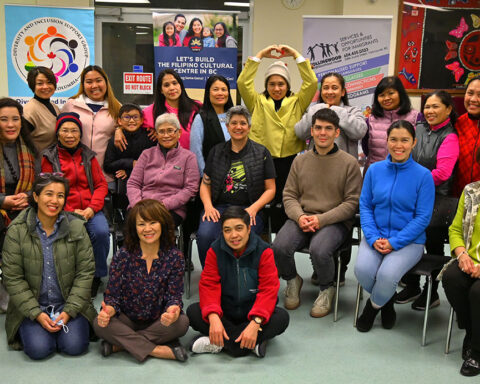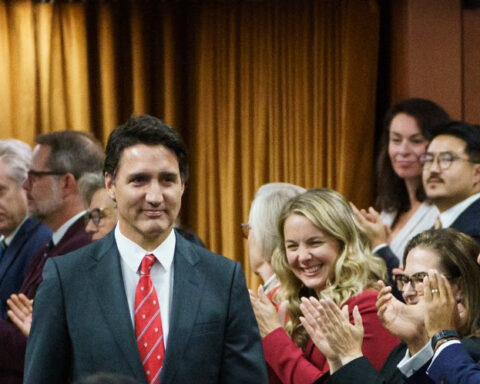Following Indian Prime Minister Modi’s successful tour of Canada, President Benigno Aquino of the Philippines is due to visit this week.
Modi’s trip was a landmark visit – four decades since the last visit to Canada of a sitting Indian Prime Minister. With a deal on nuclear trade, renewal of bilateral trade relations and promises made on counter-terrorism, this trip can be hailed a massive domestic and international success for Stephen Harper.
Harper could only hope for the same type of success with President Aquino.
Yet, with visits from these two leaders – who represent countries with high levels of immigration to Canada – an important counter-narrative has also emerged.
With Prime Minister Modi’s visit, speculation has been rife about the “Modi-effect” on Conservative electoral chances in Indo-Canadian populated regions in the country, arguably some of the most heavily contested ridings in Canada.
For example, Tim Harper at the Toronto Star has suggested that the “real payoff for Harper might come when Indo-Canadian voters go to the polls in October.”
Others have wondered if Harper’s overtures may also have an electoral motive with the large diaspora groups settled in Canada from these two countries.
With Prime Minister Modi’s visit, speculation has been rife about the “Modi-effect” on Conservative electoral chances in Indo-Canadian populated regions in the country, arguably some of the most heavily contested ridings in Canada.
Modi’s trip to Canada certainly was diaspora-focused.
Speaking in Toronto, he commanded a 10,000-strong audience of largely Indo-Canadians keen to get a glimpse of India’s new “Rockstar” PM. This event marked the halfway point in a four-day Canadian tour, which included a whirlwind of photo ops at Parliament Hill, Rideau Hall and the Air India Memorial in Toronto.
This was followed by visits to Vancouver and a trip to a Hindu temple and Sikh gurudwara in Surrey, BC – one of the most densely Indo-Canadian populated cities in the country.
Yet, we should be wary of making tall claims about electoral gains. If Conservatives see electoral gains in these ridings, it won’t be because of Modi or Aquino necessarily.
More Required to Sway Votes
As shown by Prime Minister Modi’s trip, these visits do not do enough to differentiate Stephen Harper’s foreign policy from other candidates to be an election issue, particularly the Liberals’ Justin Trudeau.
Trudeau’s sit down with Modi also articulated the importance of India for his party, suggesting Canada-India relations would not be damaged by a Liberal victory this fall.
Similar to Harper’s army of ministers traveling to India in droves, Trudeau’s Liberal party has also made its presence known in India. There is precedent for this – it was, after all, Liberal Prime Ministers Chretien and Martin that led Team Canada delegations to India in the late 1990s.
On the other hand, Tom Mulcair didn’t seem to think Modi’s visit would change his electoral fortunes. He did not take an opportunity to meet with Modi, citing scheduling challenges.
Harper seems to assume that immigrant voters are not particularly complex. He appears to believe that a few photo ops and press conferences with foreign leaders will sway ethnic Canadians to the Conservative party.
Meeting with Modi might not be electorally important to Mulcair – two large Indo-Canadian communities in Canada, Brampton East and Surrey North, are already held by NDP MPs, despite the party’s limited stance on Canada-India relations.
Further, Harper seems to assume that immigrant voters are not particularly complex. He appears to believe that a few photo ops and press conferences with foreign leaders will sway ethnic Canadians to the Conservative party.
However, like all other voters in the country, immigrant communities have complex reasons for how they vote – there is no electoral proof that ridings with large ethnic populations will elect one party over another on the basis of foreign policy.
MPs from all parties are elected in ridings in Brampton, Mississauga, Scarborough, Abbotsford, Surrey and Richmond – all highly diverse communities across Canada.
Immigrant Vote is Complex Terrain
My research rejects this developing narrative. It has found that Canada’s immigrant communities are driven by all of the same factors as other voters, including quality of social services, investments, health care, education and economic benefits such as tax relief.
They may vote Conservative because of their social values, NDP for their environmental policies, or Liberal because of their social policies, but explanations should not be isolated to one set of beliefs.
[T]hese communities are composed of second- and third-generation immigrants, women, linguistic and religious minorities, none of whom necessarily vote for or identify with homeland politics.
In a review of electoral outcomes, my research found that votes are often split between parties in largely ethnic ridings, regardless if opposing candidates are from the same or different immigrant groups. This research is supported by significant scholarship in Canadian Foreign Policy that has acknowledged that foreign policy has little salience in electoral politics.
Similarly, this narrative does not account for differences and complexities within immigrant communities. It ignores the idea that these communities are composed of second- and third-generation immigrants, women, linguistic and religious minorities, none of whom necessarily vote for or identify with homeland politics.
Prominent India-watchers in Canada, such as Kasi Rao have noted that the “Indo-Canadian community has made strides in all parties in Canada, federally and provincially and I think the community has now deepened in Canada.”
Given the religious, ethnic and nationalist divisions within the Indian diaspora, it cannot be assumed that they vote as a unified entity.
With President Aquino’s visit upon us, expect numerous photo opportunities, important speeches and a number of well-timed handshakes. But if Prime Minister Harper believes that this will have a positive effect on the upcoming election, he may have another thing coming.
Anita Singh is a founding partner of Tahlan, Jorden & Singh Consulting Group and a Research Fellow at the Centre for Foreign Policy Studies at Dalhousie University. Her research examines the role of diaspora groups and their influence on foreign policy, particularly the Indo-Canadian community and Canada-India relations.
Anita Singh is on the board of directors for the Council of Agencies Serving South Asians (CASSA), an umbrella organization with the goal of empowering the South Asian community. CASSA is committed to the elimination of all forms of discrimination from Canadian society.





